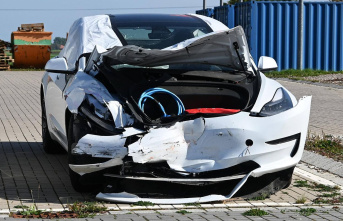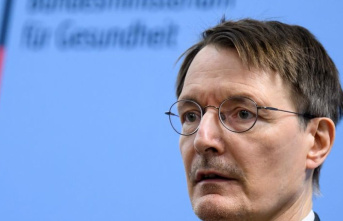After the decision for an EU gas price cap, industry representatives fear growing problems with the gas supply. "Gas price caps do not solve a supply crisis, but fundamentally risk the security of supply in Europe," said Holger Loesch, Deputy General Manager of the Federation of German Industries (BDI), on Tuesday. Gas goes to the regions that are willing to pay the prices caused by the gas shortage.
The EU states agreed on Monday to limit the gas price in European wholesale under certain conditions if it exceeds 180 euros per megawatt hour at the TTF trading venue. If the mechanism is triggered, the price is capped at a maximum of 35 euros per megawatt hour above the international price for liquefied natural gas (LNG). The project basically affects major customers who trade on the TTF - not end consumers, such as the gas price brake of the federal government.
The federal government had long resisted the price cap due to concerns about security of supply, but ultimately agreed.
More concerns
However, the Federal Association of Energy and Water Industries (BDEW) does not see the concerns dispelled: "The market correction mechanism decided by the EU energy ministers is a major intervention, the consequences of which can hardly be foreseen without its benefit being clearly proven," explained the chairwoman of the General Manager, Kerstin Andreae. The gas price cap could further exacerbate the gas supply situation as it weakens Europe's competitive situation and LNG suppliers in Asia could possibly achieve higher prices.
The association of family businesses also reported concerns. "If you want to switch off the market economy, it usually backfires," explained managing director Albrecht von der Hagen. The price cap signals to the markets that gas is not a scarce commodity in the EU - but the opposite is the case. In the worst case, Europe's economy would come to a standstill.
Strict security welcomed
Initially, however, the markets did not appear to be concerned by the decision. The gas price on the TTF did not rise on the day after the decision, as some had feared, but fell slightly. On Tuesday afternoon it was around 105 euros per megawatt hour. On Monday, the gas there cost 108 euros per megawatt hour.
The associations welcomed the fact that the new mechanism was linked to strict safety precautions. "The cap must be suspended as soon as there are risks to the security of energy supply, financial stability or gas flows within the EU," said BDI Vice-Lösch. Andreae praised the fact that instead of a rigid price cap, there is now a dynamic upper price limit linked to a global LNG reference price.
The states had also agreed to coordinate gas purchases in the future and to approve solar or wind systems more quickly. BDI Vice-Lösch commented that this sends a strong signal for security of supply and climate protection. "Only an increase in the energy supply can permanently counteract the gas shortage and the associated high energy prices," he said.









